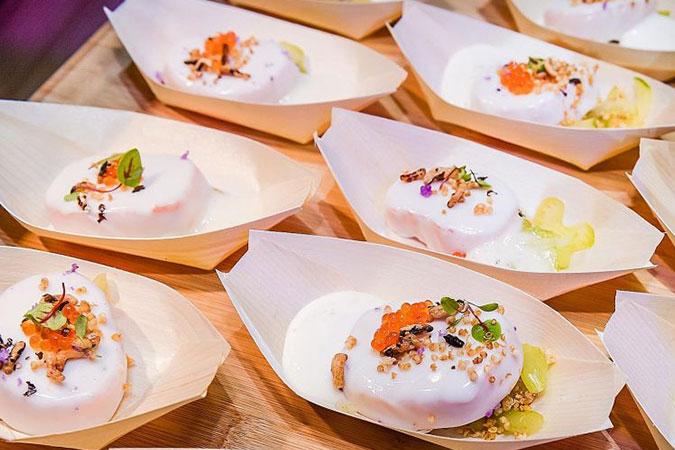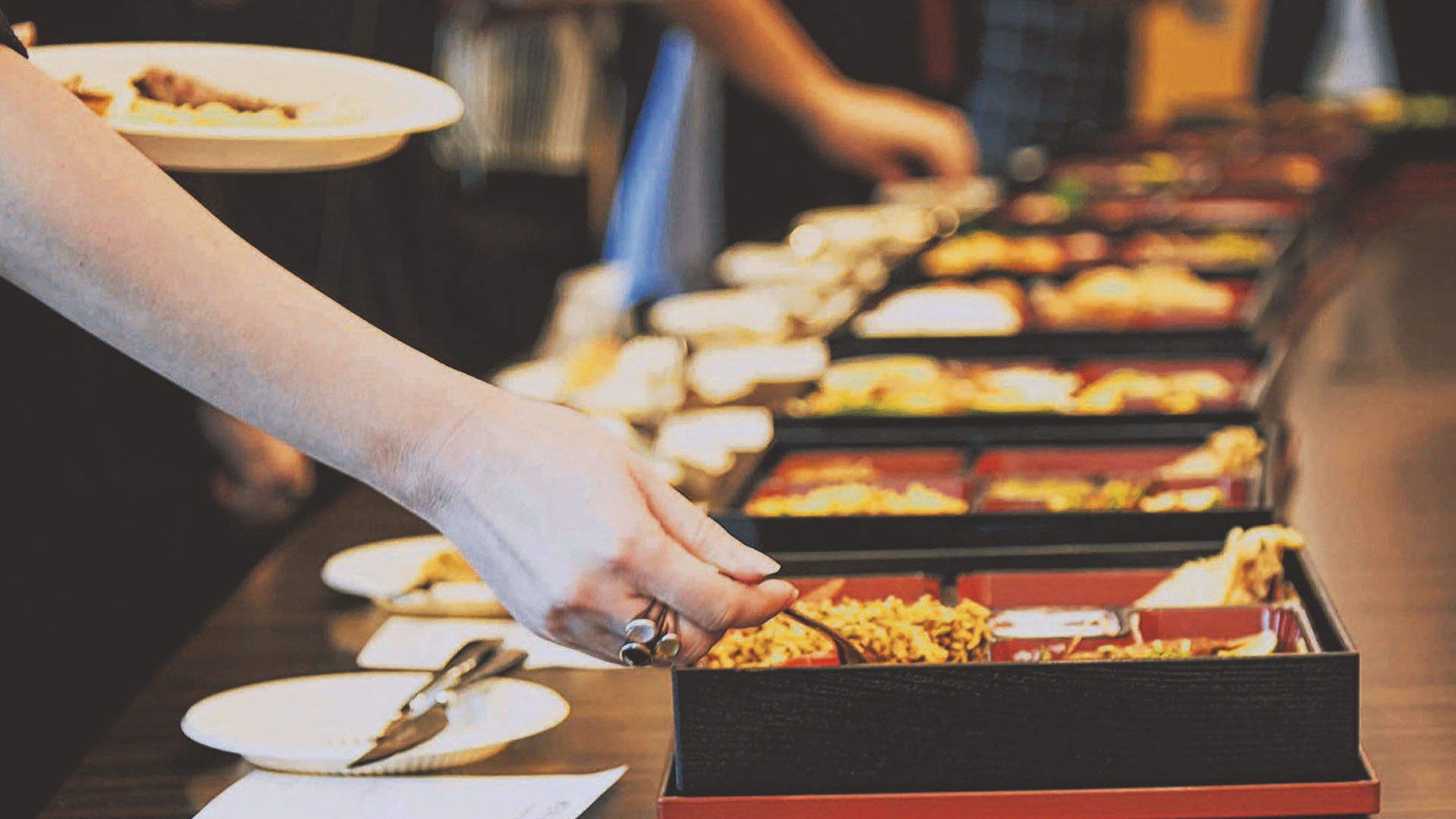Early this month, the World Wide Fund for Nature announced a major push in Singapore to reduce the use of plastic disposables in the food and beverage industry, with more than 270 restaurants and businesses involved.
As part of this Plastic ACTion initiative, the businesses - which include catering companies - are committed to start phasing out plastics by tomorrow. It starts with reducing the use of straws, followed by other plastic items such as cutlery and bottles.
And while it may be more common to see cafes and restaurants backing this movement, catering companies The Sunday Times spoke to are also taking steps to offer alternatives to plastic in an effort to reduce waste.
No more single-use plastics
Buffet caterers Neo Group, Purple Sage and The Foodist have done away with single-use plastics, opting for paper, Cornware or reusable options.
Purple Sage provides biodegradable and fully compostable wares for catering. It has also stopped providing plastic straws, using only paper ones when necessary.

Purple Sage serves up its dishes in containers made from opeh leaves (above). PHOTO: PURPLE SAGE GROUP
Similarly, The Foodist, a five-year-old company which works with restaurant partners to cater and deliver bentos, offers biodegradable cutlery made from natural starches.
It had been using a mix of paper food boxes and disposable plastic bentos to serve food for about two years, before switching to reusable lacquered bento boxes in 2016.
How to cut down on plastics when ordering catered food
-
Support caterers who offer non-plastic options and engage in sustainable practices.
-
Be proactive. Speak to caterers about the non-plastic options available and request they avoid single-use plastics where possible.
-
Make sustainability a theme of the party. Request guests bring their own reusable cutlery, cups and containers if possible.
-
Use a water dispenser instead of offering bottled water to guests.
-
Go premium. If the budget allows, ask caterers for porcelain ware instead of plastic disposables. Most caterers would provide this option with a top-up. Less waste is generated and guests can have a more premium dining experience.
Instead of a biodegradable disposable box, which customers have to pay $1 for, they can opt for a reusable lacquered bento box by topping up $3.
The Foodist's vice-president Ng Dirong, 37, says: "We decided to switch to reusable lacquered bento boxes when we realised there was demand for food delivered in a more presentable and eco-friendly packaging. Our customers and restaurant partners loved the presentation of our lacquered bento boxes and also the idea that they can be reused, thus generating less waste."
Both companies also offer the option of paying a little extra - from $5 a person - for the use of porcelain tableware for buffets.
Marketing manager Charmaine Lim, 38, says: "An additional $5 a person for an eco-friendly option can work out to be quite a big sum if I have to cater for a large group, but I don't mind as long as it fits my budget when I cater for corporate events.
"Hopefully, if more businesses start doing this and more consumers catch on, the industry can work together to bring the cost down."
Mr Alan Tan, 55, co-owner and managing director of Purple Sage, adds: "We also offer dinnerware made of opeh leaves, and reduce food waste by removing chafing dishes and using small plates for food cooked a la minute."
Using small plates allows for better portion control.
In addition, Purple Sage plans to work with recycling companies to place recycling bins at its events to encourage recycling.
Ramping up efforts
Other companies are ramping up efforts this year.
iFood - a social enterprise that operates cafes in locations such as secondary schools, junior colleges and Yishun Community Hospital - has stopped offering straws since the start of this year and uses Cornware and paper wrappers for food.
Mr Alvin Sabai, 54, chief executive officer of iFood, says: "We make every effort to recycle all plastic food receptacles given by our suppliers. For example, large ice-cream tubs are reused to store cut vegetables, while four-or five-litre plastic bottles containing juice concentrate are reused to store other beverages."
Global food services company Sodexo, which caters food to schools, hospitals as well as multinational corporations in Singapore, has started to remove single-use plastics since March 1 this year. It is committed to phasing out single-use plastics by 2025.
Mr Roshith Rajan, Sodexo's director of corporate responsibility in Asia Pacific, says: "It is important to re-emphasise that the most sustainable option related to plastics is to prevent its use in the first instance."
Challenges ahead
Cost is one of the key barriers to going plastic-free, say companies that spoke to The Sunday Times.
But despite the cost, Ms Fion Lim, 38, director of catering company FattyDaddyFattyMummy, started a new initiative this month for its new tingkat brand - Love, Tingkat!.
Plastic bags have been replaced by reusable warmer bags to store food. She is also looking to replace plastic cutlery with biodegradable ones.
She says: "It is more expensive to maintain non-plastic options. Some customers will keep the warmer bag without returning it, which requires the use of more bags. It could be costly in the long run as we have to replenish the bags."
Mr Sabai of iFood also faces a similar challenge of high cost, as his customers are mainly students. "The only way to move forward is to have more companies switch to alternative packaging and, with economies of scale, we hope the price of such packaging will be similar to low-cost plastic," he says.
"We also have to be realistic and find real solutions to some of the beverages we serve, especially ice-blended drinks which cannot be consumed with paper straws."
But with awareness growing among consumers and companies, The Foodist's Mr Ng believes the industry is moving in the right direction. He says: "Completely phasing out plastics might take a while, but we believe it is the conscious effort to take action that is important.
"More can be done to educate and highlight the negative effects of the waste generated by the catering industry to drive caterers to start to make a change. It is important for catering companies, including ourselves, to be aware of how much we contribute to waste."
This article is produced in partnership with ST Life.
